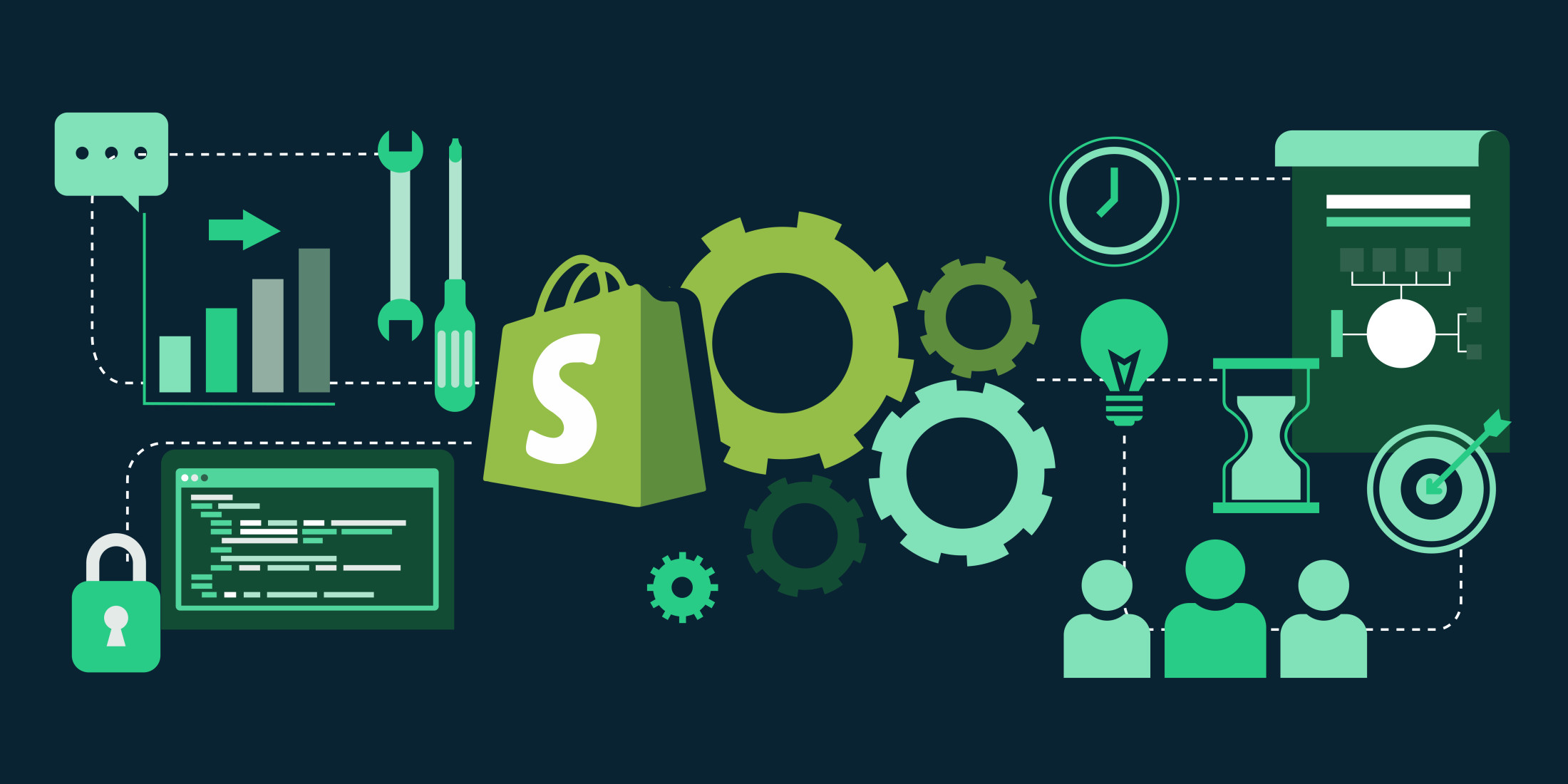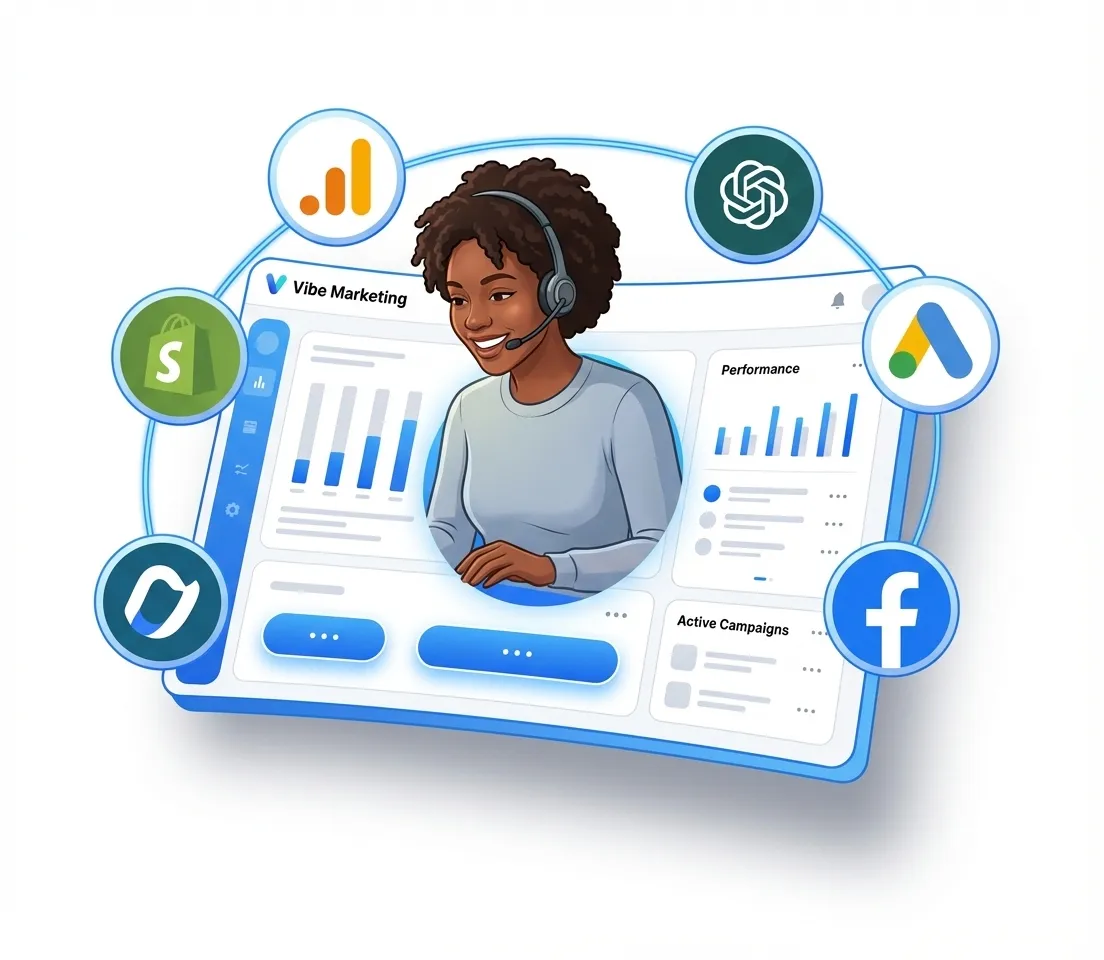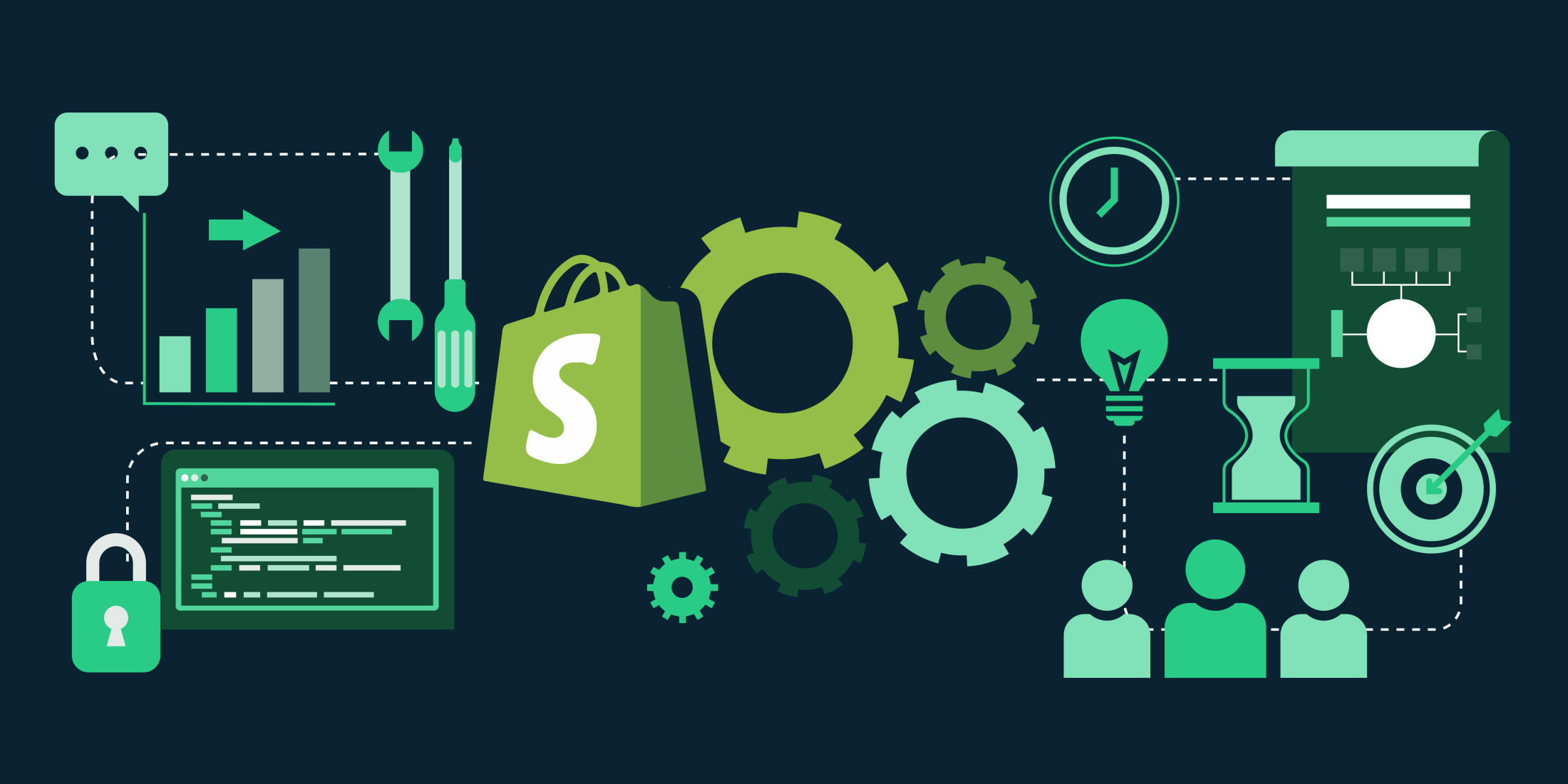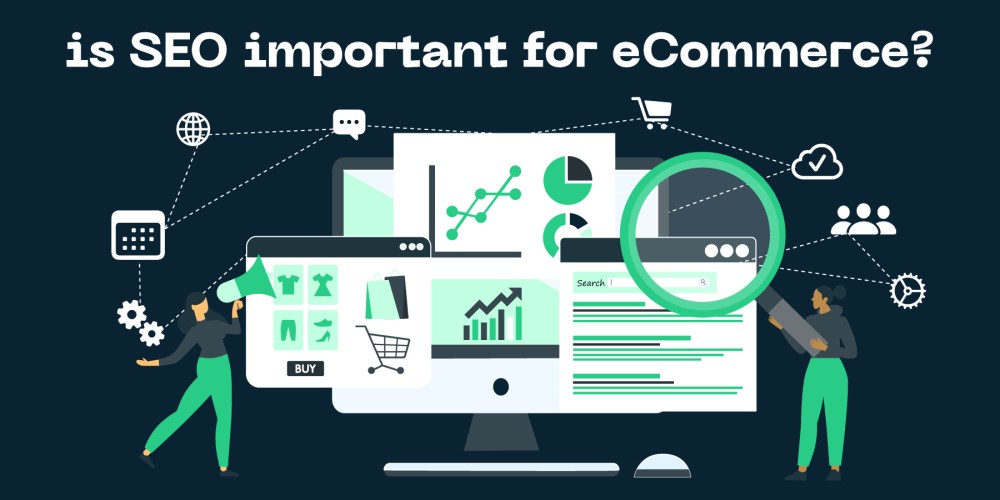How to Use AI to Optimize Your PPC Campaigns

Key Takeaways
- ConvertMate is a powerful solution for eCommerce brands looking to enhance their PPC campaigns with AI.
- Understanding AI in PPC campaigns can help you save time and money while increasing ad performance.
- AI-driven tools make it easier to find high-performing keywords and optimize ad copy.
- With AI, you can automate bid management and budget optimization to maximize your ROI.
- Measuring success and continuously improving your campaigns is simpler with AI analytics.
- Implementing AI strategies in your PPC campaigns can significantly boost your advertising success.
Understanding AI in PPC Campaigns
What is AI in PPC
Understanding AI in PPC campaigns involves recognizing how artificial intelligence technologies can transform traditional pay-per-click strategies into more efficient, data-driven efforts. For ecommerce store owners and marketers, AI can be a game-changer by automating complex tasks such as keyword bidding, audience targeting, and ad copy generation. Through AI algorithms, PPC campaigns can dynamically adjust bids in real-time based on user behavior and market conditions, thereby optimizing ad spend and maximizing return on investment. The capacity of AI to process vast amounts of data allows marketers to gain deeper insights into consumer trends, enabling more precise targeting and personalized ad experiences.
AI in PPC is not just about automation; it's about enhancing the strategic elements of online advertising. By leveraging AI, marketers can analyze patterns and predict future trends with higher accuracy. This predictive capability is crucial for ecommerce businesses aiming to stay ahead of the competition. AI can help identify the most effective ad formats and messaging for different audience segments, increasing conversion rates and customer engagement. Moreover, AI tools can provide real-time analytics and performance reports, allowing marketers to make informed decisions swiftly and confidently.
However, while AI can significantly enhance PPC campaigns, it requires a thoughtful approach to integration. Marketers must ensure that AI tools align with their specific business goals and customer needs. The human touch remains essential in fine-tuning AI-driven insights and strategies to reflect brand values and messaging. Therefore, while AI in PPC offers incredible potential, it should be seen as a complement to human creativity and strategic thinking, rather than a replacement. As ecommerce store owners and marketers explore the possibilities of AI, the focus should be on creating a synergistic relationship between human expertise and technological innovation to achieve optimal campaign performance.
Benefits of AI for PPC
Artificial Intelligence has revolutionized the landscape of Pay-Per-Click (PPC) campaigns, offering unprecedented advantages that can significantly enhance the performance of your ecommerce store's advertising efforts. One of the most prominent benefits of integrating AI into PPC strategies is its ability to process vast amounts of data at a speed and accuracy beyond human capability. This means AI can analyze consumer behavior, predict purchasing patterns, and adjust ad targeting strategies in real-time, ensuring that your campaigns reach the right audience at the right time. For ecommerce owners and marketers aiming to boost their conversion rates, this precision targeting can lead to a substantial increase in returns on ad spend.
Another significant advantage of AI in PPC campaigns is its capability to optimize bidding strategies automatically. AI-driven tools can adjust bids based on a variety of factors such as time of day, geographical location, and even shifts in consumer sentiment. This level of automation not only saves time but also maximizes the budget by ensuring you get the most out of every dollar spent. For marketers juggling multiple campaigns, AI can act as a tireless assistant, continuously refining strategies to achieve optimal results without manual intervention. This automation allows for a more strategic focus on creative and strategic planning, driving more innovative and effective marketing initiatives.
Furthermore, AI can enhance the creative elements of PPC campaigns. By analyzing successful ad copies, AI tools can generate insights into which types of messaging and visuals are most effective at engaging potential customers. This data-driven approach to creativity ensures that your ads are not only targeted but also compelling and relevant. For ecommerce businesses, where capturing consumer interest quickly can make or break a sale, these insights can be invaluable. Overall, leveraging AI in your PPC campaigns can lead to more efficient, effective, and profitable marketing efforts, aligning perfectly with the goals of increasing conversion rates and driving growth in a competitive online marketplace.
Implementing AI for Keyword Research
AI-driven Keyword Tools
Implementing AI for keyword research revolutionizes how ecommerce store owners and marketers approach their Pay-Per-Click (PPC) campaigns. AI-driven keyword tools analyze vast amounts of data to identify patterns and trends that manual methods might miss. These tools can predict shifts in consumer behavior, allowing marketers to stay one step ahead of their competitors. By automating the keyword research process, businesses can quickly identify high-performing keywords that are more likely to convert, saving time and ensuring a higher return on investment. This optimization is crucial in a digital landscape where competition for consumer attention is fierce and every click counts.
Moreover, AI-driven keyword tools provide more than just suggestions; they offer insights into the sentiment and context behind keywords. For instance, AI can distinguish whether a keyword is associated with a positive or negative sentiment, which can guide marketers in crafting better-targeted ad copy and landing pages. Additionally, these tools can analyze competitors’ keyword strategies, offering a comprehensive view of the market landscape. For ecommerce businesses, this means they can fine-tune their PPC campaigns more effectively, targeting not just potential customers but the right kind of customers who are more likely to make a purchase.
While some may argue that AI cannot fully replace human intuition and creativity, its ability to process and learn from large datasets provides a significant advantage. Marketers who leverage AI-driven keyword tools gain a deeper understanding of their audience and the dynamics of the market. This understanding empowers them to make data-driven decisions that enhance their PPC strategies. The integration of AI in keyword research is not just a trend but a necessity for those looking to excel in the fast-paced world of digital marketing. As ecommerce continues to grow, embracing AI-driven tools will be key to optimizing campaigns and achieving higher conversion rates.
Choosing High-performing Keywords
Implementing AI for keyword research has become a game-changer for eCommerce store owners and marketers who are keen to optimize their PPC campaigns. AI-powered tools can analyze vast datasets to identify high-performing keywords with precision, taking into account factors such as search volume, competition, and relevance. This means that instead of manually sifting through potential keywords, marketers can rely on AI to quickly and efficiently pinpoint those most likely to drive conversions. By leveraging machine learning algorithms, these tools can even predict trending keywords and offer insights into future search behaviors, allowing businesses to stay ahead of the curve.
One of the significant advantages of using AI for keyword research is its ability to adapt and learn from new data continuously. As market dynamics shift and consumer behaviors evolve, AI systems update their predictions and recommendations, ensuring that your PPC campaigns remain relevant and competitive. This adaptability is crucial in today's fast-paced digital landscape, where missing out on emerging trends can mean losing ground to competitors. Moreover, AI can help uncover long-tail keywords that are not immediately obvious but can yield significant return on investment due to lower competition and higher specificity to user intent.
Incorporating AI into your keyword research strategy not only saves time but can also enhance the accuracy and efficacy of your marketing efforts. By identifying and targeting high-performing keywords, businesses can attract more qualified traffic, increase conversion rates, and ultimately achieve a better return on ad spend. As such, eCommerce store owners and marketers should seriously consider integrating AI into their PPC optimization processes, not just as a tool for keyword discovery, but as a strategic partner in achieving their business objectives. Embracing AI-driven insights ensures that your campaigns are not just reactive but proactive, aligning closely with consumer intent and market opportunities.
Optimizing Ad Copy with AI
AI Tools for Ad Creation
In the rapidly evolving world of digital advertising, AI tools have emerged as game-changers for ecommerce store owners and marketers. One of the most significant areas where these tools are making an impact is in the optimization of ad copy. By leveraging artificial intelligence, businesses can create compelling, targeted, and data-driven ad content that resonates with their audience and drives higher conversion rates. AI tools analyze vast amounts of data to identify patterns and preferences, allowing for the crafting of ad copy that is not only engaging but also aligned with customer needs and behaviors. This level of customization and precision was previously unattainable with traditional methods.
Moreover, AI tools enhance the ad creation process by providing real-time insights and suggestions. These tools can assess the performance of different ad variations, offering recommendations to improve effectiveness based on metrics like click-through rates and engagement levels. For instance, AI can suggest changes in wording, tone, or even the structure of an ad to optimize its performance. This capability allows marketers to continuously refine their PPC campaigns, ensuring that the ad content is always optimized for maximum impact. As a result, businesses can allocate their marketing budget more efficiently, directing resources towards strategies that yield the highest return on investment.
However, while AI tools offer substantial benefits, it is crucial for marketers to maintain a balance between AI-driven insights and human creativity. AI can analyze data and provide recommendations, but it is the marketer's understanding of their brand and audience that ultimately shapes the final ad copy. By combining the analytical power of AI with the intuitive creativity of human marketers, businesses can create powerful PPC campaigns that not only attract clicks but also convert them into loyal customers. This synergy between technology and human insight is the key to unlocking the full potential of AI in optimizing ad copy.
A/B Testing with AI
A/B testing has long been a staple technique for marketers aiming to optimize their ad copy. By comparing two versions of an advertisement to see which one performs better, businesses can make data-driven decisions to enhance their PPC campaigns. With the advent of AI, this process has become even more sophisticated and efficient. AI algorithms can analyze large sets of data faster than any human, identifying patterns and trends that might not be immediately obvious. This enables marketers to not only conduct more tests in a shorter amount of time but also to gain deeper insights into what drives consumer engagement and conversions.
Integrating AI into your A/B testing process allows for more nuanced experimentation. AI tools can dynamically generate variations of ad copy based on real-time performance metrics, optimizing for factors such as keyword relevance, audience segmentation, and even emotional appeal. This level of granularity can be particularly beneficial for ecommerce store owners who need to tailor their messaging to a diverse customer base. By leveraging AI, you can ensure that your ads are not just catchy, but also contextually relevant, thereby increasing the likelihood of conversion.
However, while AI-driven A/B testing can offer significant advantages, it is important to maintain a balanced approach. Relying solely on AI without human oversight could result in missing the subtleties of human psychology that an algorithm might overlook. Therefore, it’s crucial to use AI as a tool to complement your marketing strategy, rather than replace it entirely. By combining the analytical power of AI with creative human insight, ecommerce marketers can create a robust framework for optimizing their PPC campaigns and maximizing their ROI.
Bid Management and Budget Optimization
AI Algorithms for Bidding
Bid management and budget optimization are critical components of any successful pay-per-click (PPC) campaign, especially in the competitive landscape of e-commerce. Leveraging AI algorithms in these areas can significantly enhance your strategy by making data-driven decisions that adapt to market dynamics in real-time. AI algorithms analyze vast amounts of data at breakneck speed, allowing them to spot trends and patterns that would be impossible for a human to detect in a timely manner. By doing so, they can optimize bids automatically, ensuring you are always positioned competitively without overspending your budget. This level of precision helps e-commerce store owners focus their resources on the most promising opportunities, ultimately leading to a higher conversion rate.
A key advantage of using AI for bid management is its ability to predict customer behavior with impressive accuracy. By incorporating machine learning models, AI systems can forecast which keywords are most likely to convert based on historical performance data, user behavior, and external market conditions. This predictive capability means that your bidding strategy is not just reactive but proactive, enabling you to capture high-value clicks before your competitors do. For marketers, this means more efficient budget allocation, as funds are directed toward high-impact areas rather than being wasted on low-performing keywords. Additionally, AI can continually adjust bids in real-time, ensuring that your ad spend is always aligned with the current market conditions and your campaign goals.
On the budget optimization front, AI can also be a game-changer by providing insights into the most cost-effective ways to allocate your PPC spend across various channels and campaigns. It can recommend shifts in budget allocations to maximize return on investment (ROI), ensuring that you are getting the most bang for your buck. Furthermore, AI-driven insights can help in identifying underperforming areas that may require more attention or strategic changes. For e-commerce marketers, this means having a dynamic strategy that can pivot quickly in response to shifts in customer preferences or competitive actions. Ultimately, integrating AI into your PPC campaigns fosters a more agile marketing approach, one that continuously evolves to meet the demands of a fast-paced digital marketplace.
Maximizing ROI through AI
Using Artificial Intelligence in PPC campaigns is revolutionizing how ecommerce store owners and marketers approach bid management and budget optimization. AI tools can analyze vast amounts of data quickly and accurately, allowing marketers to make informed decisions about how and where to allocate their advertising spend. This not only helps in maximizing the return on investment (ROI) but also ensures that the marketing budget is used efficiently. With AI-powered bid management, marketers can set optimal bids for each keyword based on real-time data analysis, ensuring that they do not overspend on less profitable keywords while capitalizing on high-performing ones.
One of the significant advantages of AI is its ability to learn and adapt from ongoing campaigns. It can automatically adjust bids based on a variety of factors, such as the time of day, geographic location, and even device type, to ensure that ads reach the right audience at the right time. This level of granularity and precision is challenging to achieve with manual bid management, where human errors and slow response times can lead to missed opportunities. By leveraging AI for budget optimization, marketers can better forecast spending patterns and allocate resources in a way that maximizes conversions and ROI.
Moreover, AI-driven solutions can provide insights that are not immediately apparent to human analysts. For instance, AI can identify emerging trends or shifts in consumer behavior that might impact campaign performance. By incorporating these insights into their PPC strategies, marketers can stay ahead of the competition and adapt their campaigns swiftly to changing market conditions. This proactive approach not only enhances the effectiveness of PPC campaigns but also ensures a higher conversion rate, as ads are more likely to reach customers who are genuinely interested in the products or services being offered. For ecommerce businesses striving to optimize their marketing efforts, AI presents an indispensable tool for achieving superior results and sustained growth.
Measuring Success of AI-optimized Campaigns
Key Metrics to Track
In the realm of AI-optimized PPC campaigns, tracking key metrics can make the difference between a flourishing marketing strategy and a floundering one. As an ecommerce store owner or marketer, understanding these metrics allows you to fine-tune your campaigns and maximize your return on investment. One of the primary metrics to track is the Click-Through Rate (CTR), which indicates how often your ads are clicked on compared to how often they are shown. A higher CTR often signifies that your ad’s message resonates with the target audience, which is imperative for an increase in conversions. As AI algorithms learn from historical data, they can help identify patterns that lead to improved CTRs, ensuring that your ads reach a more receptive audience over time.
Another crucial metric to monitor is the Conversion Rate, which measures the percentage of users who complete a desired action after clicking on your ad, such as making a purchase or signing up for a newsletter. AI can optimize your campaigns by analyzing which keywords, ad placements, and audience segments are more likely to result in conversions, allowing for a highly targeted and efficient approach. Leveraging AI in this way not only increases the likelihood of conversion but also helps in reducing the cost-per-conversion, thereby enhancing the overall profitability of your PPC efforts.
Lastly, keeping an eye on the Return on Ad Spend (ROAS) is essential for assessing the overall effectiveness of your campaigns. ROAS provides insight into the revenue generated for every dollar spent on advertising. AI tools can dynamically adjust bids and placements to improve this metric, focusing on high-value customers who are more likely to contribute positively to your bottom line. By regularly analyzing these key metrics through the lens of AI optimization, you can ensure your PPC campaigns are not only cost-effective but also aligned with your business goals, ultimately leading to sustainable growth and increased conversion rates.
Continuous Improvement with AI
Measuring the success of AI-optimized campaigns is crucial for marketers and ecommerce store owners aiming to increase their conversion rate. Leveraging AI for PPC campaigns can be revolutionary, but it’s essential to have concrete metrics in place to evaluate performance effectively. One of the primary metrics to consider is the conversion rate itself. By comparing pre- and post-implementation data, you can determine if AI is genuinely optimizing your campaigns. Additionally, tracking key performance indicators (KPIs) such as cost per acquisition (CPA) and return on ad spend (ROAS) can provide a more comprehensive picture of your campaigns’ success.
It’s also important to recognize that AI brings a layer of complexity to your analysis since it’s continuously learning and adapting. This adaptability means that the AI’s impact might not be immediately visible, requiring a longer timeframe to assess its effectiveness fully. Moreover, AI can uncover hidden patterns and insights that human analysis might miss, offering a distinct advantage. Therefore, alongside quantitative metrics, qualitative insights can be invaluable. Gathering feedback from your team and analyzing customer behavior changes post-AI implementation can provide a nuanced understanding of the campaign’s success.
While AI can significantly enhance PPC campaign performance, it's essential to approach it with a mindset geared toward continuous improvement. AI tools should be regularly fine-tuned based on the insights gained, ensuring that your campaigns remain aligned with your business goals. Ultimately, the objective is not just to rely on AI blindly but to collaborate with it, integrating human expertise and creativity to achieve optimal results. This partnership between human intellect and artificial intelligence can unlock new levels of efficiency and effectiveness in marketing campaigns.
FAQs
How can AI improve the targeting of my PPC campaigns?
AI can analyze vast amounts of data from previous campaigns to identify patterns and predict which audiences are most likely to convert. This allows businesses to target their ads more precisely, reducing wasted spend on uninterested users.
What role does AI play in optimizing ad creatives for PPC?
AI can test different ad creatives by using machine learning algorithms to determine which design, copy, and call-to-action combinations perform best with specific audiences, thus maximizing the return on ad spend.
How does AI help in budgeting and bid management for PPC campaigns?
AI tools can automatically adjust bids in real-time based on performance data, ensuring that you’re not overspending on underperforming ads while increasing bids on high-converting ads. This dynamic adjustment helps optimize the overall budget.
Can AI assist with keyword optimization in PPC campaigns?
Yes, AI can analyze search trends and competitor strategies to suggest high-performing keywords. It can also predict which keywords are likely to yield the best results, helping refine your PPC strategy.
How does ConvertMate use AI to enhance PPC campaigns?
ConvertMate integrates AI-driven analytics to provide insights into user behavior, enabling more effective segmentation and personalized ad targeting. This leads to a higher conversion rate and improved ROI.
Is AI useful for A/B testing in PPC campaigns?
Absolutely. AI can automate and accelerate A/B testing by quickly analyzing data from multiple versions of ads to identify the most effective elements, allowing for faster optimization of your PPC campaigns.
How can AI help in analyzing the performance of PPC campaigns?
AI tools can provide comprehensive performance analytics, breaking down the data by various dimensions such as demographics, device types, and time of day. This allows for pinpointing exactly where improvements can be made to enhance campaign effectiveness.



